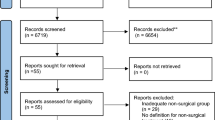Abstract
Efficacy of weight loss and maintenance therapies in obesity is difficult to quantify due to continuous weight changes over time. We assessed a single exponential model of weight changes during selected non-surgical therapies of non-diabetic obese subjects. We analyzed published mean weight data from 6 studies of ≥12 weeks duration, with comparable treatment groups, and ≥4 weight measurements during very low carbohydrate or fat diets, or treatment with Lorcaserin, Sibutramine or Orlistat. We fit data to a single exponential model to estimate maximum predicted weight loss or regain and duration of weight loss or regain for each therapy. A single exponential is the appropriate model as determined by Kolmogorov-Smirnov, constant variance, and Durbin-Watson tests. Validity of parameter estimates was indicated by coefficients of variation <25%. Sensitivity analysis showed that weight regain at the end of the weight loss phase affected parameter estimates in some instances, with variations of weight loss of 0.2–0.7% of basal. Estimated weight loss and regain were similar to observed weight changes in all studies. The model could also be used to assess dose-response relationships. Estimates from the model were used to compare concurrent obesity regimens using 95% confidence intervals, taking into account pre-determined minimal clinically important differences. This exponential model may provide accurate estimates of maximum achievable weight loss or regain and optimal duration of efficacy for a variety of non-surgical weight loss and maintenance regimens from published mean weight data and may be useful to more accurately evaluate weight loss and maintenance regimens.
Similar content being viewed by others
References
The Global Challenge of Obesity and the International Obesity Task Force. [cited 2012March 11]; Available from: http://www.iuns.org/features/obesity/obesity.htm#Interna tional%20Obesity%20Task%20Force.
Ogden CL, Carroll MD, Curtin LR, et al. Prevalence of overweight and obesity in the United States, 1999-2004. JAMA 2006; 295: 1549–55.
Li Z, Maglione M, Tu W, et al. Meta-analysis: pharmacologic treatment of obesity. Ann Intern Med 2005; 142: 532–46. Epub 2005/04/06.
Greenway FL, Bray GA. Combination drugs for treating obesity. Curr Diab Rep 2010; 10: 108–15. Epub 2010/04/29.
Ioannides-Demos LL, Piccenna L, McNeil JJ. Pharmacotherapies for obesity: past, current, and future therapies. J Obes 2011; 2011:179674. Epub 2010 Dec 12.
Makoundou V, Bobbioni-Harsch E, Gachoud JP, et al. A 2-year multifactor approach of weight loss maintenance. EatWeight Disord 2010; 15: e9–14.
Sjostrom L, Rissanen A, Andersen T, et al. Randomised placebo-controlled trial of orlistat for weight loss and prevention of weight regain in obese patients. European Multicentre Orlistat Study Group. Lancet 1998; 352: 167–72.
Smith SR, Weissman NJ, Anderson CM, et al. Multicenter, placebo-controlled trial of lorcaserin for weight management. N Engl J Med 2010; 363: 245–56.
Davidson MH, Hauptman J, DiGirolamo M, et al. Weight control and risk factor reduction in obese subjects treated for 2 years with orlistat: a randomized controlled trial. JAMA 1999; 281: 235–42.
Brehm BJ, Seeley RJ, Daniels SR, et al. A randomized trial comparing a very low carbohydrate diet and a calorie-restricted low fat diet on body weight and cardiovascular risk factors in healthy women. J Clin Endocrinol Metab 2003; 88: 1617–23.
Smith SR, Prosser WA, Donahue DJ, et al. Lorcaserin (APD356), a selective 5-HT(2C) agonist, reduces body weight in obese men and women. Obesity (Silver Spring) 2009; 17: 494–503. Epub 2008/12/06.
Bray GA, Blackburn GL, Ferguson JM, et al. Sibutramine produces dose-related weight loss. Obes Res 1999; 7: 189–98.
Toplak H, Ziegler O, Keller U, et al. X-PERT: weight reduction with orlistat in obese subjects receiving a mildly or moderately reduced-energy diet: early response to treatment predicts weight maintenance. Diabetes Obes Metab 2005; 7: 699–708.
Larsen TM, Dalskov SM, van Baak M, et al. Diets with high or low protein content and glycemic index for weight-loss maintenance. N Engl J Med 2010; 363: 2102–13.
Krempf M, Louvet JP, Allanic H, et al. Weight reduction and long-term maintenance after 18 months treatment with orlistat for obesity. Int J Obes Relat Metab Disord 2003; 27: 591–7.
Finer N, James WP, Kopelman PG, et al. One-year treatment of obesity: a randomized, double-blind, placebo-controlled, multicentre study of orlistat, a gastrointestinal lipase inhibitor. Int J Obes Relat Metab Disord 2000; 24: 306–13.
Bray GA. There’s more than one way to skin a cat: response to “Reporting weight loss: is simple better?” Obesity (Silver Spring) 2010; 18: 651.
Bray GA, Bouchard C, Church TS, et al. Is it time to change the way we report and discuss weight loss? Obesity (Silver Spring) 2009; 17: 619–21.
Sharma AM, Karmali S, Birch DW. Reporting weight loss: is simple better? Obesity (Silver Spring) 2010; 18: 219.
Forbes GB. Weight loss during fasting: implications for the obese. Am J Clin Nutr 1970; 23: 1212–9.
Heymsfield SB, Thomas D, Nguyen AM, et al. Voluntary weight loss: systematic review of early phase body composition changes. Obes Rev 2010; 12: e348–61.
Forbes GB, Drenick EJ. Loss of body nitrogen on fasting. Am J Clin Nutr 1979; 32: 1570–4.
Heymsfield SB, Casper K, Hearn J, et al. Rate of weight loss during underfeeding: relation to level of physical activity. Metabolism 1989; 38: 215–23.
Heymsfield SB, Harp JB, Reitman ML, et al. Why do obese patients not lose more weight when treated with low-calorie diets? A mechanistic perspective. Am J Clin Nutr 2007; 85: 346–54.
Motulsky H. Intuitive Biostatistics. New York, Oxford University Press, 1995, pp 285–6.
Kaptein EM, Beale E, Chan LS. Thyroid hormone therapy for obesity and nonthyroidal illnesses: a systematic review. J Clin Endocrinol Metab 2009; 94: 3663–75.
Kaptein EM, Sanchez A, Beale E, et al. Thyroid hormone therapy for postoperative nonthyroidal illnesses: a systematic review and synthesis. J Clin Endocrinol Metab 2010; 95: 4526–34.
Author information
Authors and Affiliations
Corresponding author
Rights and permissions
About this article
Cite this article
Kaptein, E.M., Chan, L.S. & Kaptein, J.S. Assessment of maximum weight change and duration of therapeutic effect for non-surgical treatment of obesity using an exponential model. Eat Weight Disord 17, e234–e243 (2012). https://doi.org/10.3275/8631
Received:
Accepted:
Published:
Issue Date:
DOI: https://doi.org/10.3275/8631




